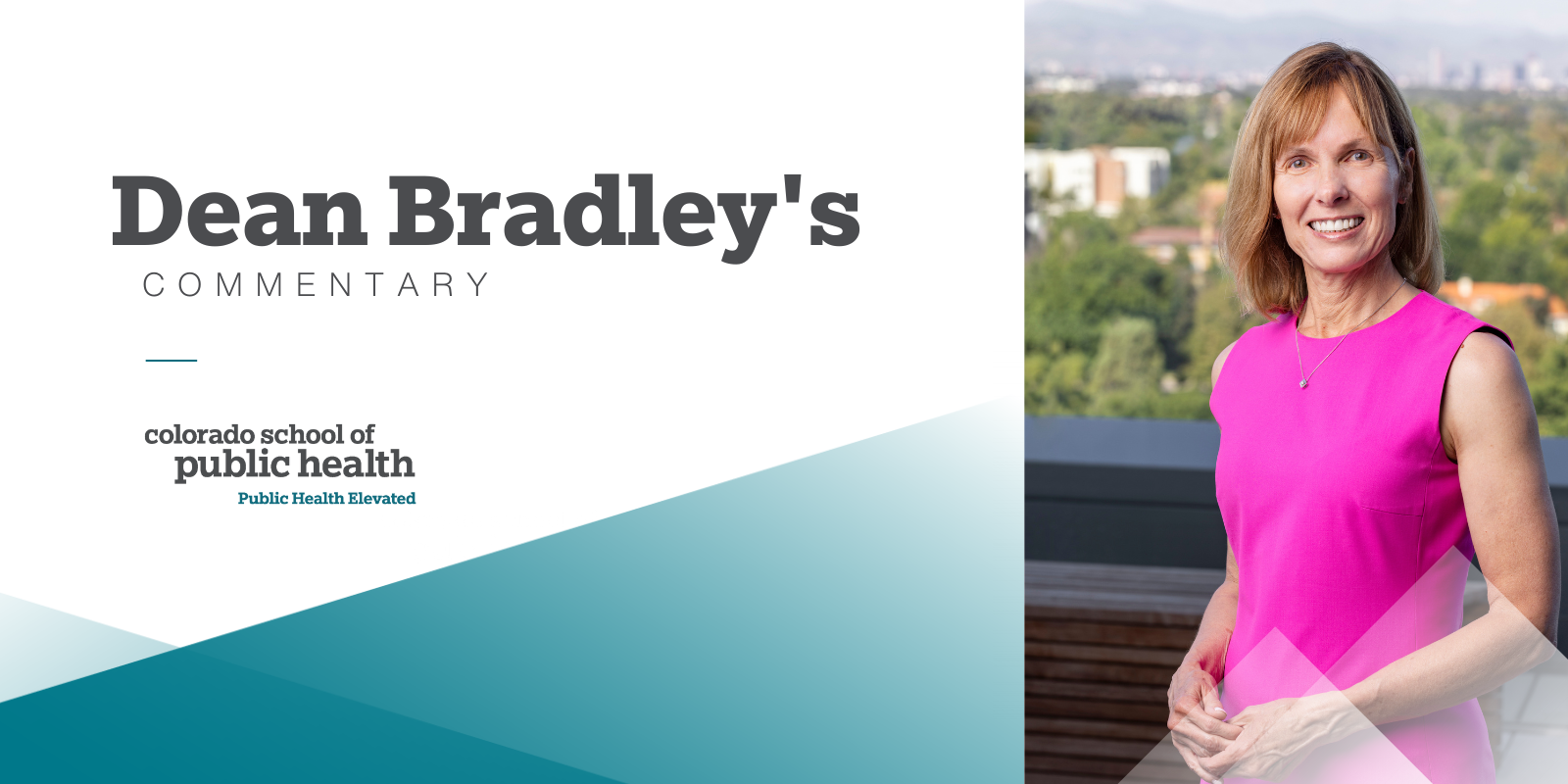Graduation marks the close of one year and the beginning of another for ColoradoSPH—it is, in many ways, our New Year’s celebration. As with any transition, it brings a mix of emotions: joy, gratitude, pride, and a touch of uncertainty about the road ahead. The uncertainty is not just about our profession, but it’s also about the health of our communities, the resilience of our systems, and the kind of world we are working to build.
But there is also great hope. New careers are being launched, and new opportunities are emerging to bring a public health lens to the complex problems facing society. As we heard from our graduation speaker, Gina McCarthy, now is the time to dig deep and do what needs to be done. Her message was clear, direct, and—at times—spicy. She inspired us to lean into our values, to speak up, and to act boldly.
Over Memorial Day weekend, I found myself reflecting on my father’s service in World War II. He was drafted at 19 and assigned to the medical detachment of an infantry unit, first in Europe and later in the Philippines. As a medic, he bore witness to the worst of the war but never carried a weapon. The Red Cross insignia on his sleeve marked him as a healer, not a soldier. He called it the “bullseye”—a symbol of both vulnerability and purpose, and he had an interesting way of seeing the world and summing it up. He focused not on grand strategies or distant futures, but on making it through each day by saving one life at a time, even if at times, that life was his own.
Like him, some public health professionals do not always wear armor—but we are, nonetheless, on the front lines. We don’t carry weapons, but we carry data, compassion, science, and resolve. We are focused on the moment we are in and committed to getting to the other side of it. We are focused squarely on saving lives, reducing suffering, and creating a better future. My father lived to be 88 in a world profoundly different from the one he knew as a young medic, and in no small part because of the work he and others did in the darkest of times.
Yes, today’s public health landscape comes with its own battles. At times it can feel as though our profession is wearing its own version of a “bulls-eye” as we navigate challenges while just trying to make things better. But like my father, and like so many before us, we do not waver. We adapt. We keep moving. We keep serving.
We’re doing just that here at ColoradoSPH. Our faculty are securing new grants to produce research that changes lives. Our student interest is surging. This year, we saw our highest application rate since the pandemic. We're refreshing our curriculum to meet the needs of both incoming students and an existing workforce eager to build new skills in areas like artificial intelligence. Alumni and community partners are stepping up to help graduates who have lost jobs. Donors are investing in scholarships. Attendance at schoolwide events is strong and growing. In short, we are not retreating, and we are rallying and will emerge stronger. Call it the Spirit of Possibility, one of our core values, but we are not going anywhere.
As all of you know and feel, public health is not just a profession; it’s a commitment to something larger than ourselves. If your goal is to do good, to lead with your values, and to make a lasting impact, you are in the right place.
So as we enter this new “year” together, I ask:
- What will you do with your training, your voice, and your passion?
- Where will you step in to carry the work forward, one moment, one challenge, one life at a time?
We need you. Our communities need you so let’s keep showing up—for each other, and for the future we believe in. I look forward to our ongoing interactions.
And to our graduates: never be deterred. My father was 19 when he entered a world full of uncertainty, fear, and hardship. But between 19 and 88, he lived a life filled with purpose, service, and deep impact. What felt uncertain in one moment became, over time, a story of hope and resilience. You are at the beginning of your own arc—and the world you step into now will change because of your work. There is so much ahead of you, and so many lives that will be better because you chose public health.




-Feb-02-2026-05-20-58-3506-PM.png)
-2.png)
-Dec-01-2025-08-03-46-6853-PM.png)